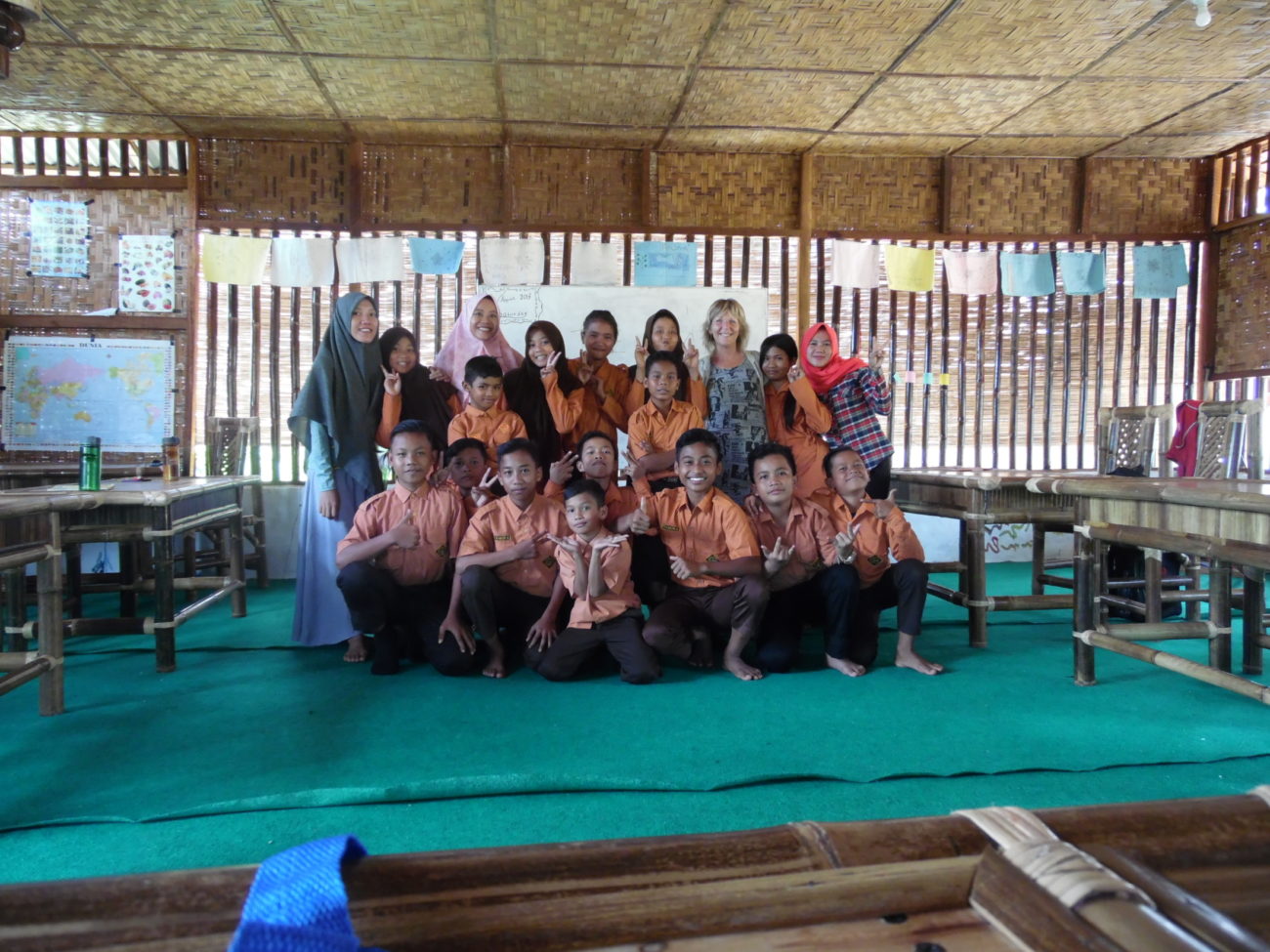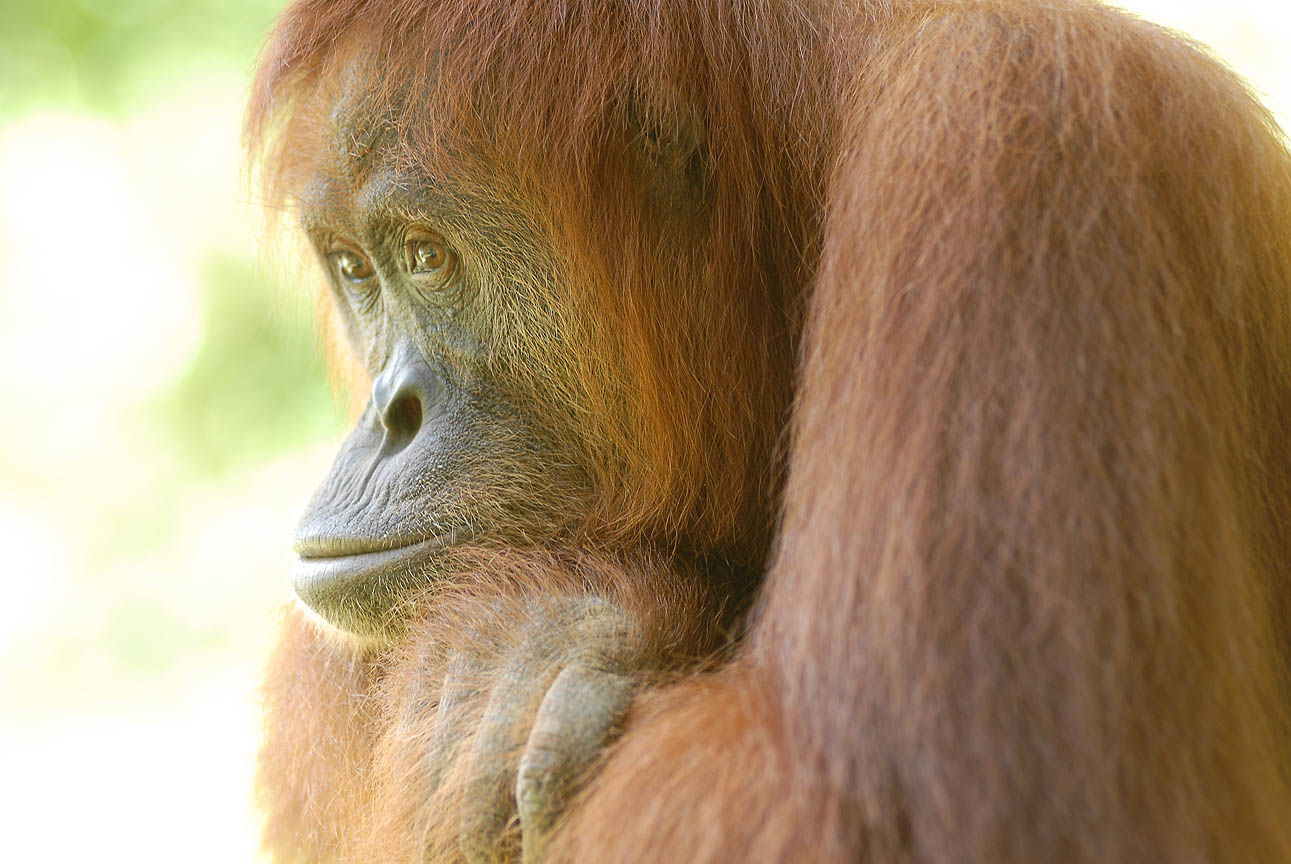I began my adventure in the Orangutan Information Centre (OIC) office in Medan. Here, I learnt about all the amazing things that they do, with support from SOS. I met the people who really make a difference. The office is busy; meetings, data analysis, fundraising and many other important things. The staff all have the same passion and work as a team. I was lucky enough to be involved in raising awareness of the plight of orangutans in an International School in Medan and support an Orangutan Festival. Raising awareness is important and giving local people the opportunity to be involved is essential.
Reading about my trip, you will notice that my desire to help orangutans has led me to acknowledge and experience how big the problem is, and how much is being done to help. I have seen the amount of land covered by oil palm trees. I have seen how this has encroached on communities, leaving them to either work for oil palm companies or relocate to Medan. However, what I also saw was the huge amount of work and effort that SOS are doing to help those on the ground.
Bukit Mas
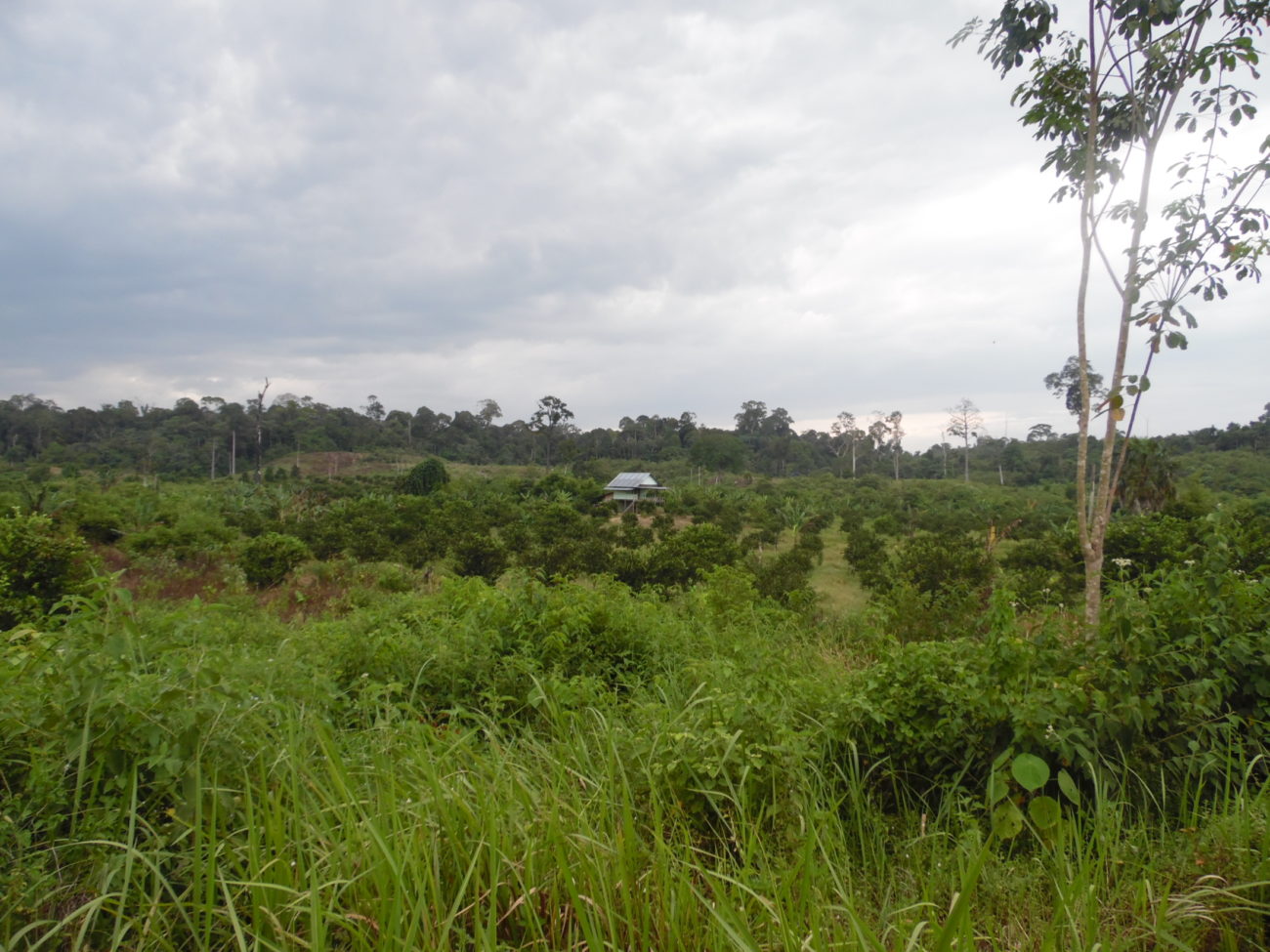
The beginnings of forest restoration at Bukit Mas. Photo by Alison Bristo.
At the end of 2017, SOS launched a new campaign supported by Lush, to reforest 50 hectares of what was once diverse orangutan habitat. After £126,014 was raised through the sale of Lush’s orangutan soaps, OIC bought the oil palm plantation land at Bukit Mas, on the edge of the Leuser Ecosystem. They are now in the process of restoring it – planting native tree seedlings to bring forest back to the area.
When I arrived at Bukit Mas, the oil palm trees had been cut down and were being used for compost to help prepare the land for reforestation. I had the chance to help plant tree seedlings, lemon grass and other plants. My initial thought was how dry the land was – I didn’t even see ants or worms in the soil. I read once that without trees, Sumatra would be desert. The oil palm trees had left the soil at Bukit Mas so dry that I could see this as a reality.
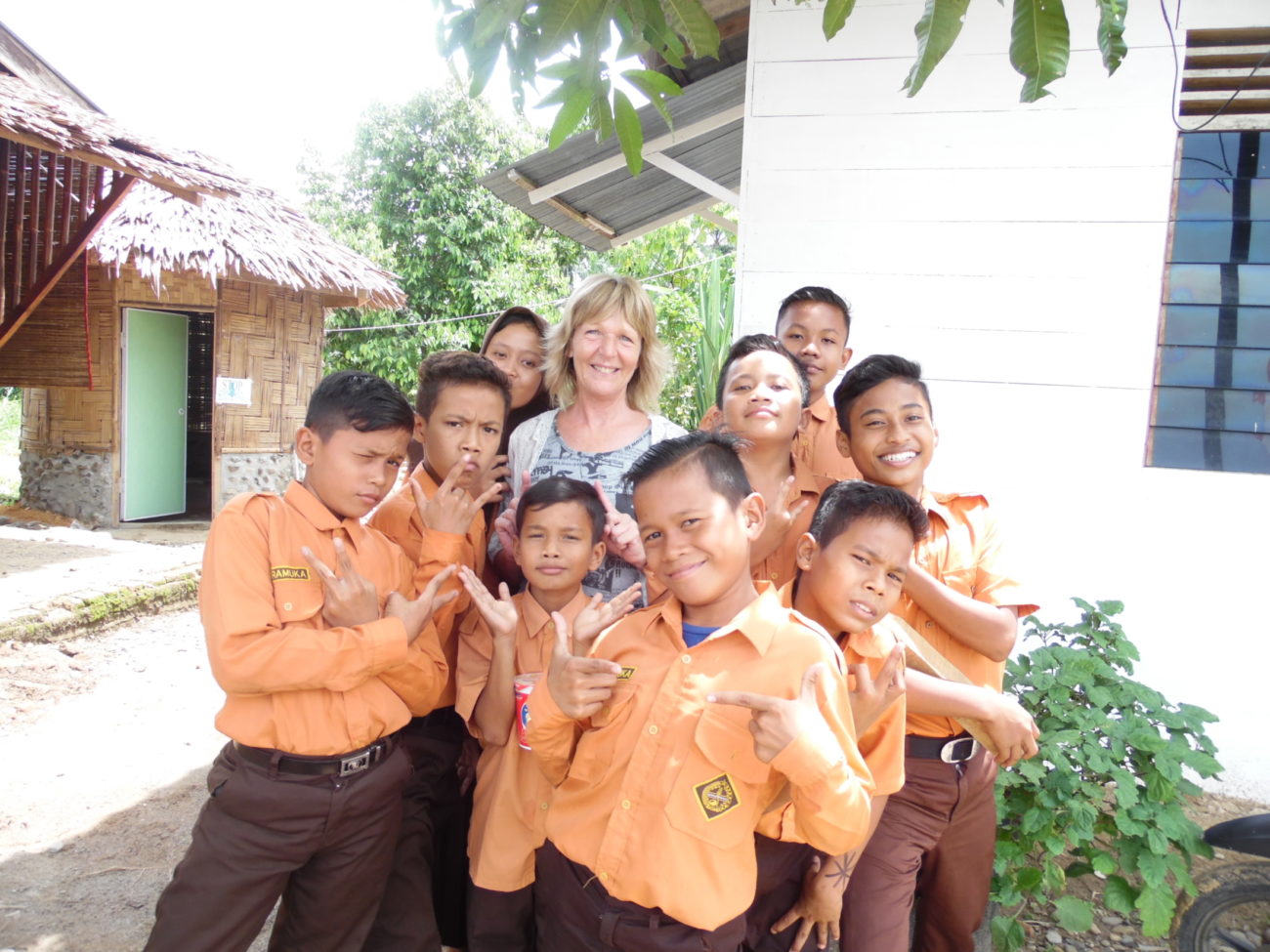
Alison with some of the pupils from the school at Bukit Mas
Prior to my arrival in Sumatra, I heard from Helen at SOS that they were funding the building of a school at Bukit Mas. I have been fortunate enough to work with children of all ages for many years, so I couldn’t wait to visit. When I arrived, the school, a lovely building made from bamboo, had only been open a couple of weeks. The school is fundamental in enabling the local community to be part of the reforestation, as it provides a much-needed opportunity for students who would otherwise have to travel many miles to go to a secondary school their parents might be unable to afford. Two of the teachers stay at the school most days and nights as they live far away, and an English language teacher visits twice a week. The teachers have been chosen for their commitment to the cause, and dedication to ensure their students achieve their full potential. The curriculum includes learning about forests and conservation alongside all the other subjects you’d expect.
I generally coached the children in English most mornings for about an hour. They were keen and engaged, learning to speak to me much quicker than me being able to talk to them in Indonesian. One day, I was lucky enough to persuade two of the teachers to go to a small town (one and a half hours away) on their mopeds and buy some small balls and a football. At a small cost of about £4 the children were excited and thrilled to have balls to play with. One teacher even made a bat from wood and we all had hours of fun playing a game together (it was similar to rounders, but I didn’t get the rules!). It was lovely to join in with the children and their teachers, and it was a great opportunity for them to practice their English with me.
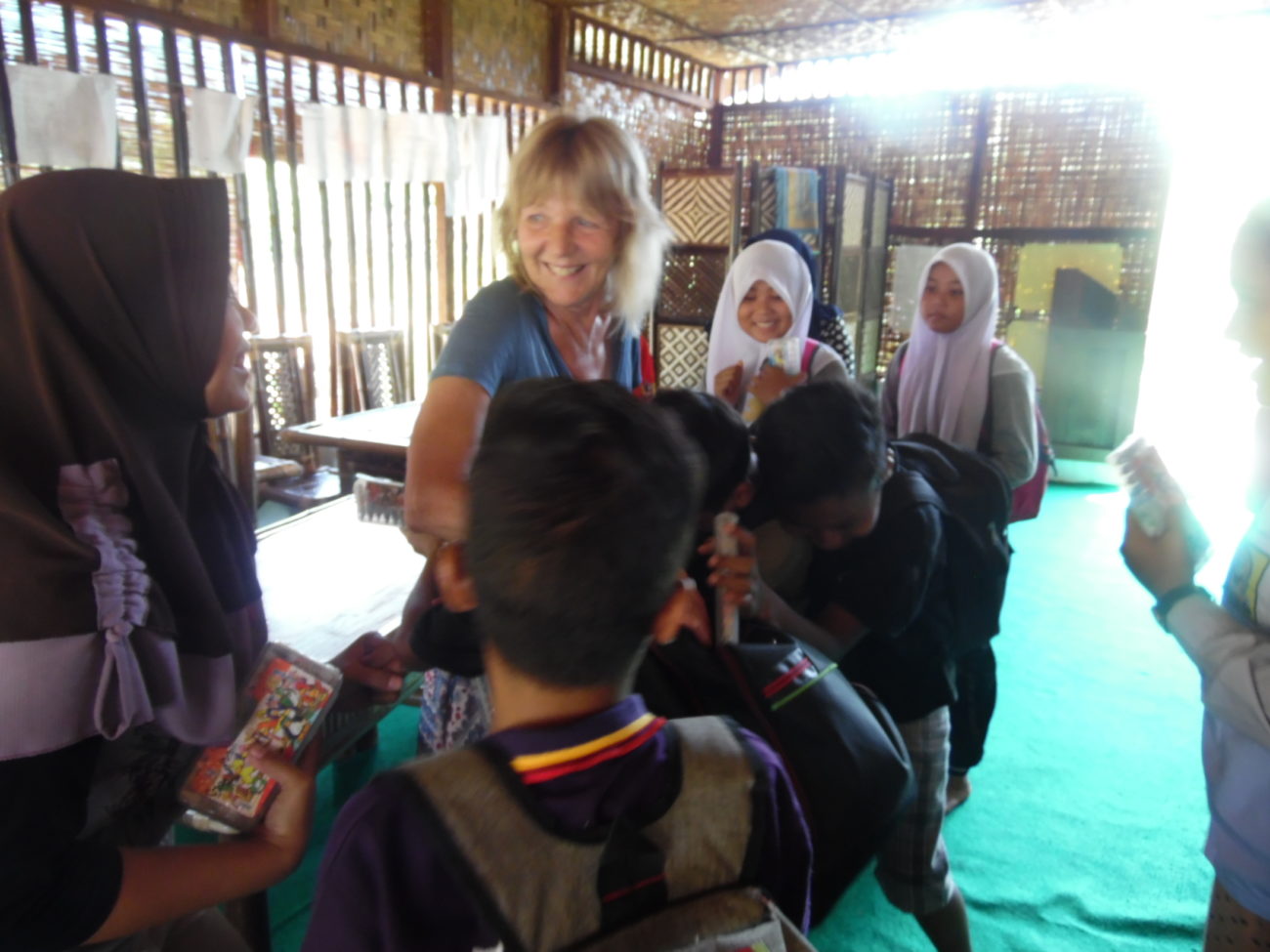
Chatting with pupils in the classroom.
There are plans to make the school bigger, and for students from other places to visit and participate in training courses. It is ambitious but essential – engaging the next generation is crucial in saving the rainforest and the life within it.
Orangutan rescue
Saving orangutans involves so many different people doing many different things, all working tirelessly with hope, enthusiasm and love for the rainforest and those that live within it. Aside from my time at Bukit Mas, I also had the opportunity to meet some of the other people working for OIC – the other forest restoration teams, and the Human Orangutan Conflict Response Unit (HOCRU).
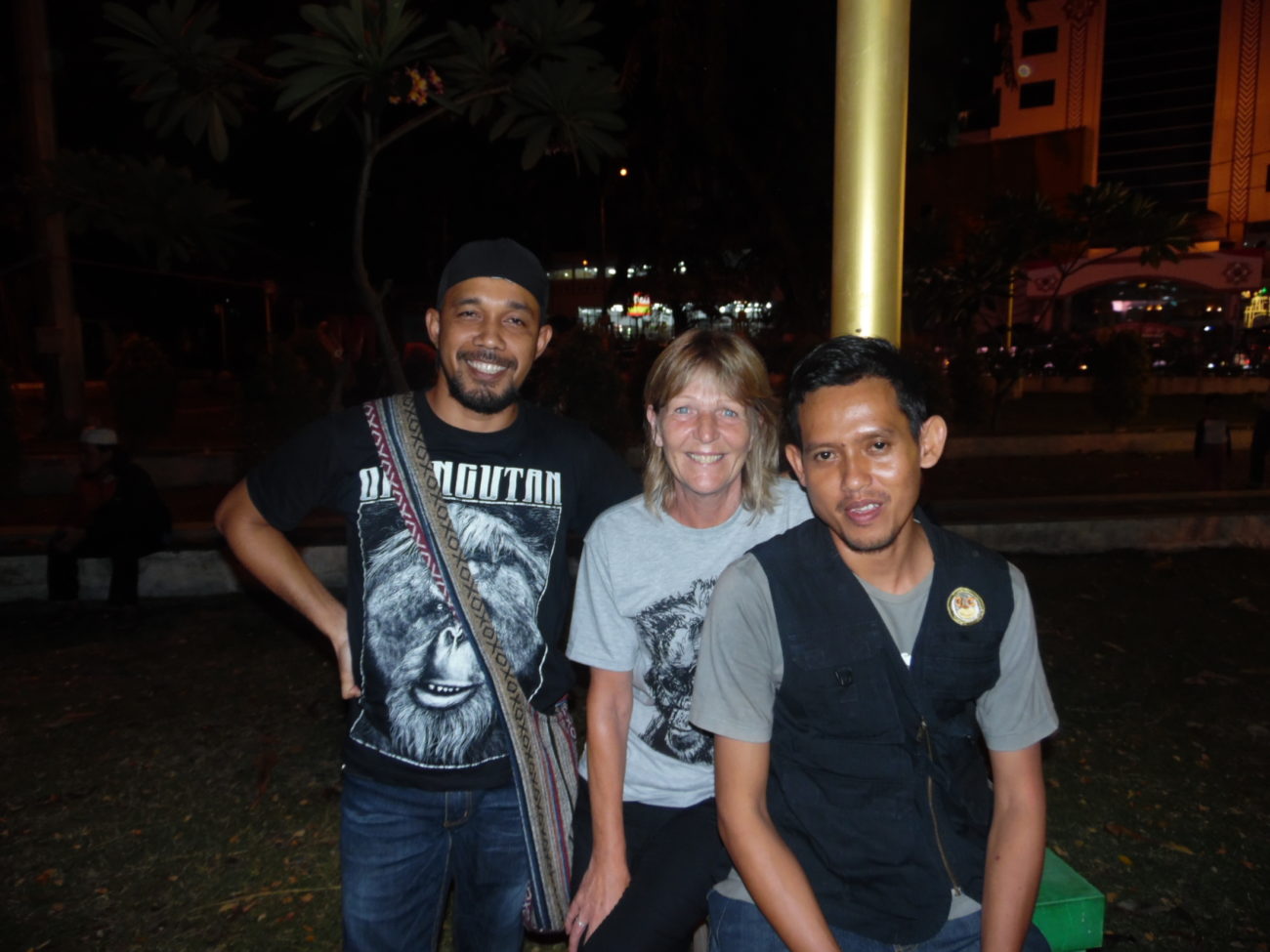
Alison with members of the HOCRU team
Fuelled by agricultural expansion, human-orangutan conflict is a growing problem in Sumatra and Borneo. As more vital habitat is converted for farming, orangutans are pushed into plantations in search of food. They are considered a threat to profits and may be captured, injured or killed. In 2010, the Sumatran Orangutan Society (SOS) and the Orangutan Information Centre (OIC) established a new specialist team to tackle the problem. The HOCRU team is responsible for investigating and mitigating conflict between farmers and orangutans. The team patrols throughout North Sumatra and Aceh, surveying agricultural landscapes, evacuating orangutans that are trapped in small pockets of forest surrounded by farmlands and relocating them back to the safe forests. They also provide training for farming communities in safely dealing with human-orangutan conflict, helping them protect their crops without harming wildlife.
When I met the HOCRU team in Medan, they had just rescued an orangutan and taken it to a safe forest where it was let free. These are brave, strong, passionate people who will do whatever they have to to save an orangutan. Some trips are several days long and the terrain is difficult, and they have to be patient and skilled with a tranquilising pellet gun. During my time in Sumatra, these heroes saved four orangutans, and all were healthy enough to be released back into the wild. It’s troubling to imagine what would happen if there was nowhere left for them to go, or if the team in Medan didn’t have the support they need to rescue them.
Forest restoration
It was also very special to be able to meet OIC’s restoration staff. One man, Gesti, is one of the most gentle, kindest, knowledgeable and skilful men I have ever met. One of his important jobs is to collect data to show the results of the restoration, including what wildlife is returning to the restoration sites. Long days and stays away from home are usual, but it wasn’t until he took me to some restoration sites that I learnt not only the importance of his work, but just how difficult it can be. Yes, trekking in the rainforest is very hot and very humid but the land is mountainous and “mind the holes” was said so often I think it became my new name! Gesti walks fast and even with his machete in one hand, his rucksack on his back and his camera in the other hand, nothing stops him from getting to where he wants to go. We checked footage on camera traps, which was awesome, and even went to a cave that was full of bats. I would never have seen so much wildlife without his skills for recognising every sound and spotting wildlife everywhere. I soon got used to leeches, sleeping outside and falling down holes, but I couldn’t get used to the spiders! Of course, it would have been magical to see a wild orangutan but to see some nests high in the canopy was really encouraging and shows the hard work of the restoration teams is making a difference.
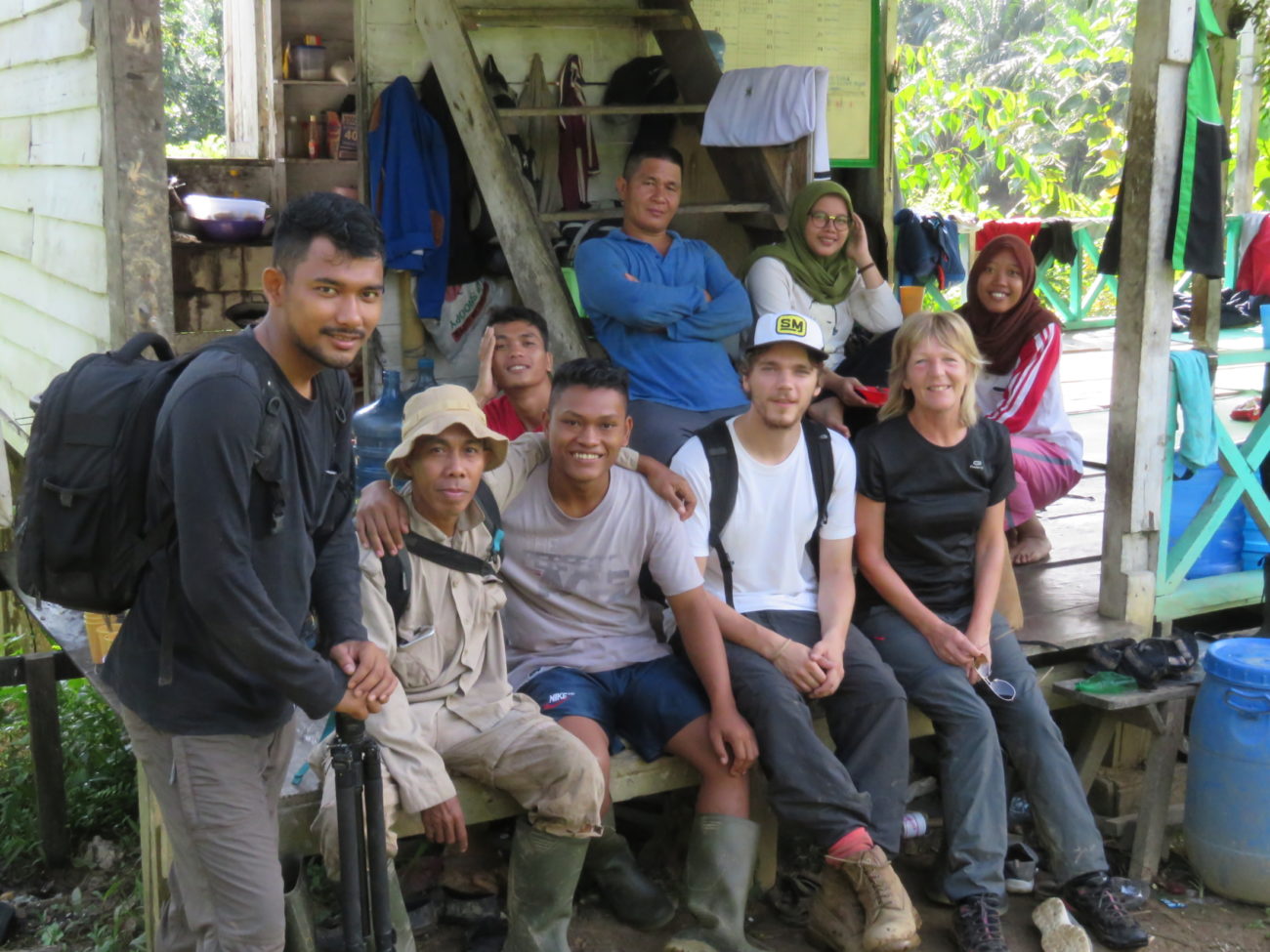
Alison and the team at Cinta Raja
There are so many people involved in restoring the rainforest and protecting orangutans here. I feel honoured to have had the opportunity to spend time with them and to have learnt so much. Saving the rainforest for orangutans and all other animals, plants and trees, involves getting the communities on board and, to do all of this, requires us to support them.
I thank everyone involved in helping to make my time in Sumatra such a wonderful, enlightening experience. I will be back!
